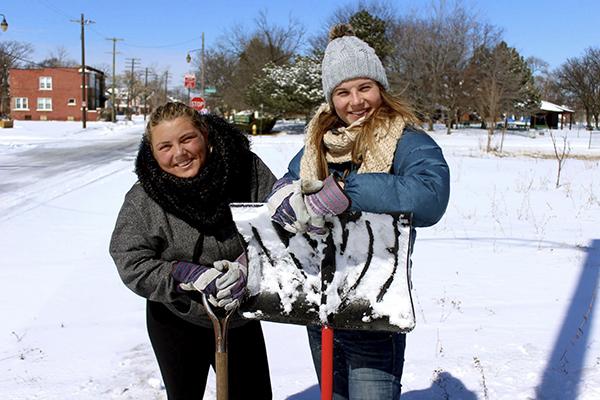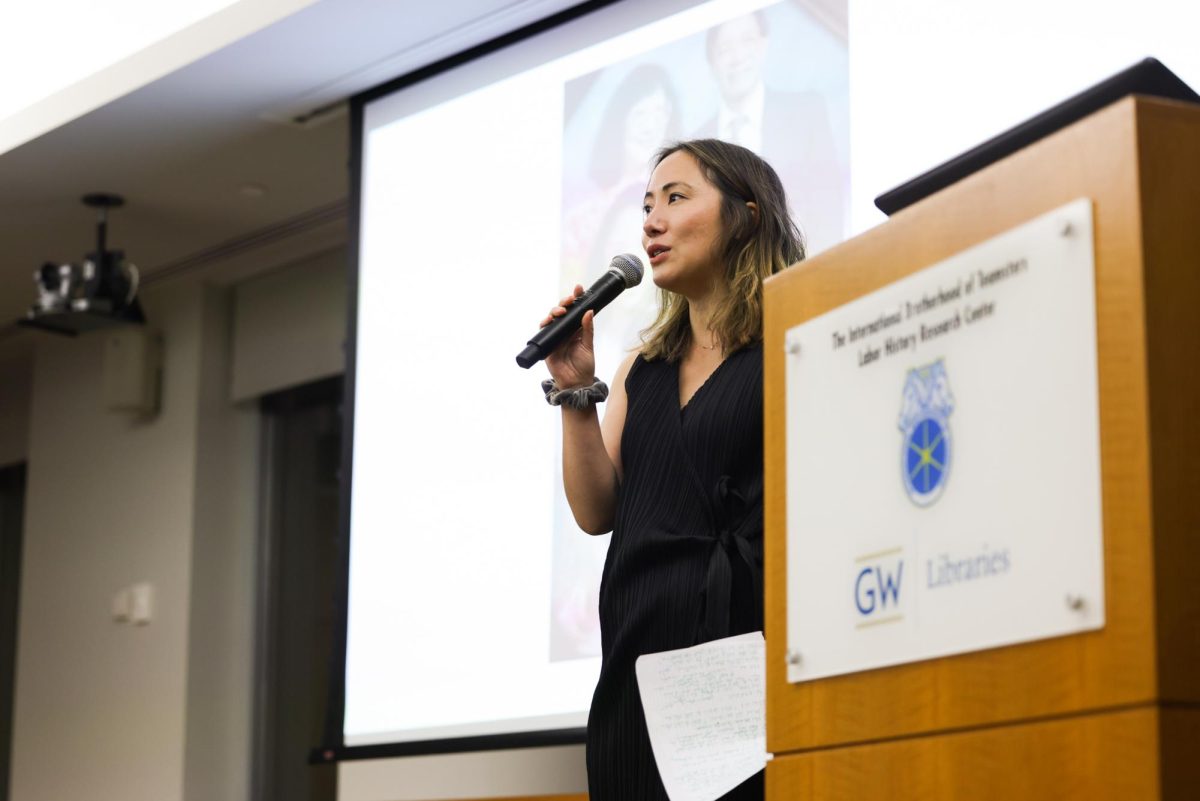When you first think of Detroit, you may think of a run-down, bankrupt and struggling city.
But alumna Paulina Kriska, who graduated in May, is trying to change that image and revitalize the city along the way.
Through the Challenge Detroit program, Kriska will live in Detroit for a year and work at Goodwill Industries of Greater Detroit. One of 30 fellows, she’ll create policy solutions for some of the city’s most pressing issues and participate in community service like planting gardens and fixing up houses.
The city filed the largest municipal bankruptcy case in United States history in 2013, and over the last 15 years, more than 25 percent of its population has moved away, according to U.S. Census Bureau. There are roughly 70,000 vacant homes and buildings, according to The New York Times.
But Detroit feels a bit like home to Kriska. She emigrated from Slovakia at seven months old and lived in Detroit until she was three. Her family then moved to a farm in North Carolina, where she grew up with an orchard, a vineyard and almost one hundred animals.
Despite not going back to Detroit during her years on the farm, Kriska said she grew an “appreciation from afar” for the Motor City.
In 2014, Kriska participated in GW’s Alternative Spring Breaks program in Detroit. When she arrived, she found the city to be much more vibrant than the bleak portrayal in the books and documentaries that she read in preparation for her trip.
“You go to these beautiful museums and you’ll see how bustling, how beautiful, how grandiose a lot of these buildings were,” she said. “And it goes to show how much potential Detroit has, and I kind of wanted to be a part of the revitalization.”
Deirdre Groves, executive director of the fellowship, described it as a way to attract top talent from around the world to “live, work, play, give and lead” in the city for one year.
Kriska also wants to put her passion for food sustainability to work in Detroit. She hopes to find solutions to eradicate food deserts — areas from which restaurants or grocery stores are inaccessible — through weekly meetings with local nonprofits. More than 500,000 Detroit residents live in areas with no access to nutritional food options, according to Fair Food Detroit, a nonprofit dedicated to sustainable food.
Kriska, who majored in biology, said her interest in food sustainability stems from her upbringing on the farm.
“Agriculture is kind of an historical thing within our family,” Kriska said, referencing her parent’s agricultural roots in Slovakia.
In D.C., Kriska followed her passion for food by working with the Capitol Food Recovery organization and the Food Justice Alliance. She also took a food policy class at GW, which mainly focused on policy relating to state-run school meal programs.
Associate sociology professor Ivy Ken, who taught the class, described Kriska as having an “interesting perspective” on food policy given her upbringing.
“Paulina came into the class already knowing a lot, but also hungry to learn more about policy and practice in urban settings, specifically,” Ken said in an email.
One of the class projects required Kriska to prepare one week of school meals that complied with the the city’s nutritional mandates and food budget. Ken said Kriska’s dishes were “full of nutritious, whole ingredients.”
“I have no doubt she will bring this sort of skill and enthusiasm to her work with Challenge Detroit, offering people both technical expertise and personal inspiration,” Ken said.
Kriska said she is most excited to work with the other 29 fellows, and said she felt an instant “familial” bond when she met them.
“A lot of these people are really accomplished,” she said. “They have a law degree, they come from these great institutions and they just have a lot to offer to the table and I’m really excited to be able to work with them.”






